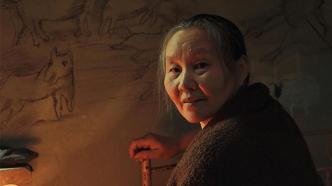
The movie "Umbilical Cord", which was released on March 18, is a small but beautiful literary film.
The film tells the story of the musician Arus returning to his mother suffering from Alzheimer's disease, accompanying her back to her hometown to find lost memories, and facing life and death choices together.
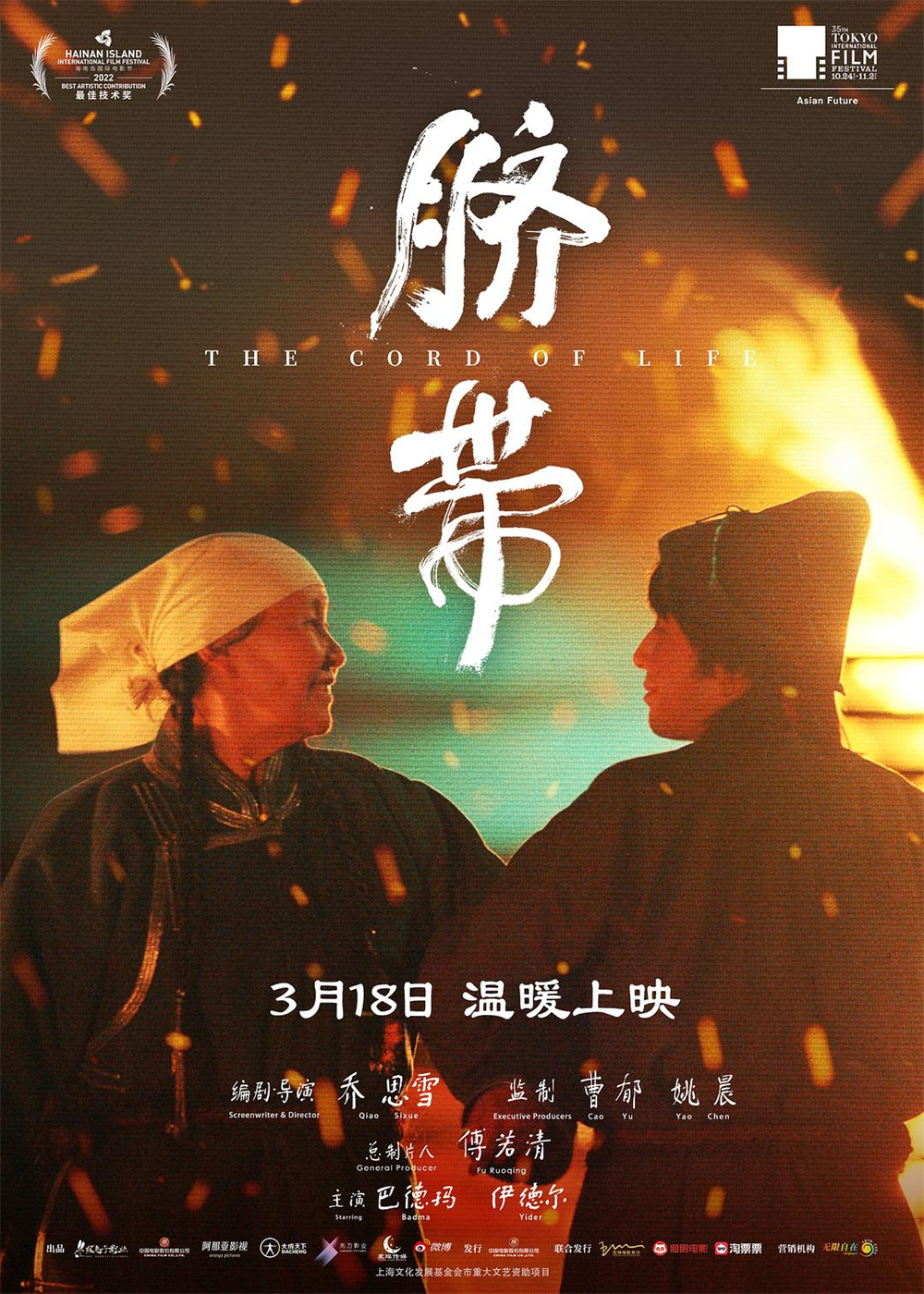
The Umbilical Cord Poster
His mother ran away from home or went to the water from time to time. In order to keep his mother from running around, Arus had to find a rope and tie one end around his mother's waist and the other end around his own. This and the "umbilical cord" have become the invisible link between Arus and his mother, and also become a concrete external expression of the invisible fetters of life and family affection.
The actor Badma contributed the most soul-stirring performance in it. The simple, natural, innocent and transparent, helpless and powerful grassland mother's last journey of life was vividly and heart-wrenchingly presented by this low-key "Golden Rooster Queen". The natural expression of Haimo's patient's "rejuvenation" state made people laugh again, and his open-mindedness towards life also made many audiences cry several times during the movie watching process.
The mother who left and returned, the prairie people accept the impermanence of life
When "The Umbilical Cord" first approached Badema, she refused. At that time, she was not in good health, and there were relatives in her hometown who were seriously ill and needed her to take care of them distractedly. She was afraid that it would delay the young people's career start. "For a young director returning from overseas, the first film is very important. I also know that it is very difficult for others to find investment. I have never acted in this kind of Alzheimer's patient. I am afraid that I will not be able to act well. , affecting others."
However, director Qiao Sixue insisted, "From the moment I saw her, I made up my mind to invite Teacher Badema to play the role of mother."
Due to several invitations from the director and the producer, Badema finally took on this "difficult task". She has played the role of a mother on the prairie many times. This role needs more natural expression, "Mom, every woman should have an instinctive motherhood in her heart. The elderly in the family are getting older in terms of Alzheimer's disease. There are symptoms of that too, and I put in them my own observations of life."
Qiao Sixue remembers that what touched her the most was Badma's eyes, "I saw kindness and childishness from them, the two are very organically compatible, and I can't feel the traces of the years on her spirit at all." Producer Ren Liang Jing was also pleasantly surprised to see the unexpected "girly feeling" in this post-60s artist, "When she smiles, you will feel that she is completely a girl. After seeing her, I and the director sighed, The word girl really does not describe a person's appearance, but a person's state of mind and state."
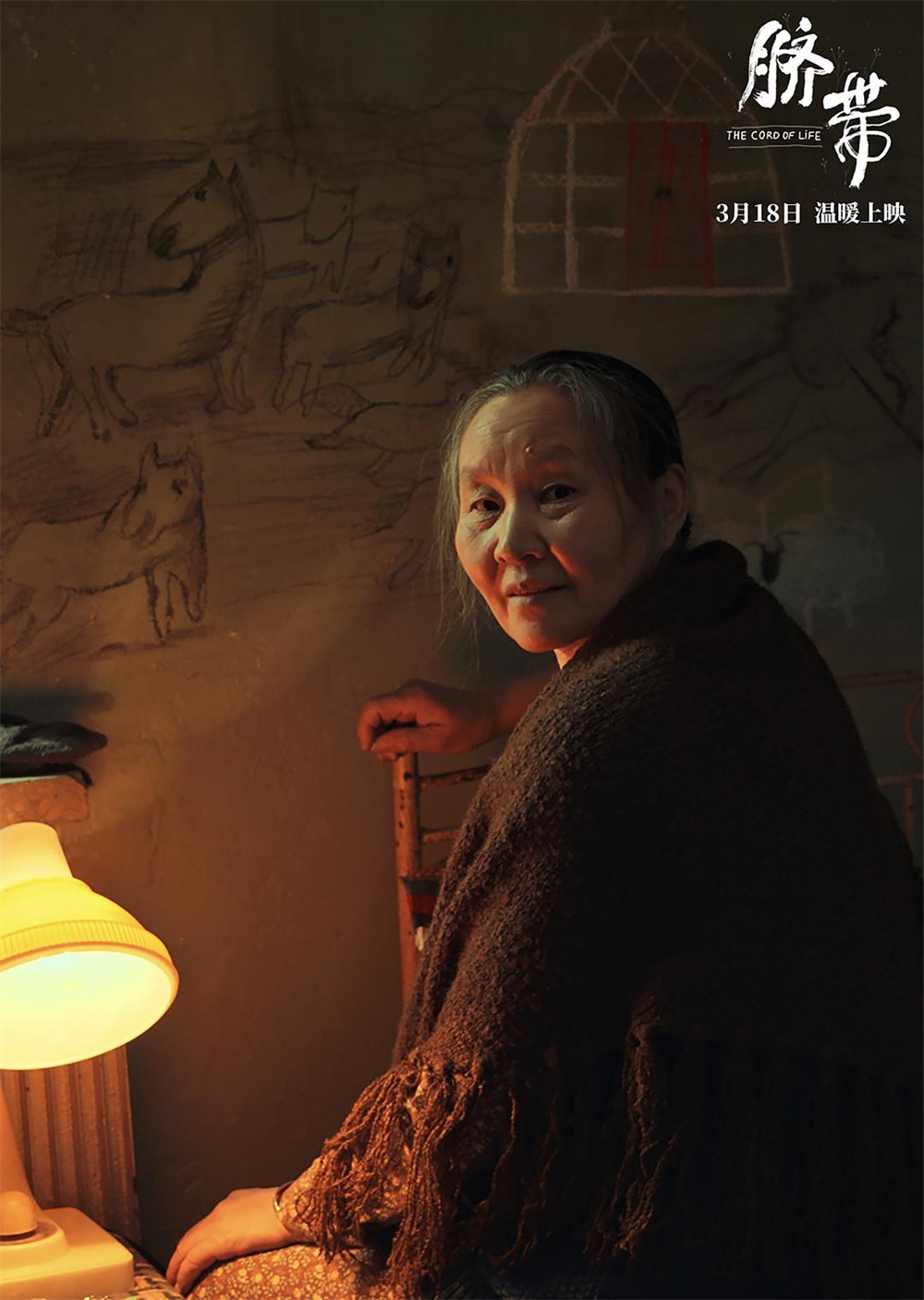
Stills of "Umbilical Cord"
Passing this other people's "eyes" to Badma, she laughed heartily, "Every aspect of my life is quite simple, and sometimes I look like a child."
And movies just need this "childlike" state. The movie resets the relationship between the mother and the child. Because of the illness, the mother's behavior regressed to the child's state, but the son had no choice but to step by step into the role of a caregiver "parent". There are a lot of improvisation sequences in the film. In a scene where Arus and the drunk men repair the house together, Badema playfully plays with plastic sheeting stuck to the wall, and the naughty, childlike image of Alzheimer's patients is used. Interpreted just right and without being artificial. Badma talked about the performance state at that time, "Because I am like a child, very simple, this state is a natural expression for me."
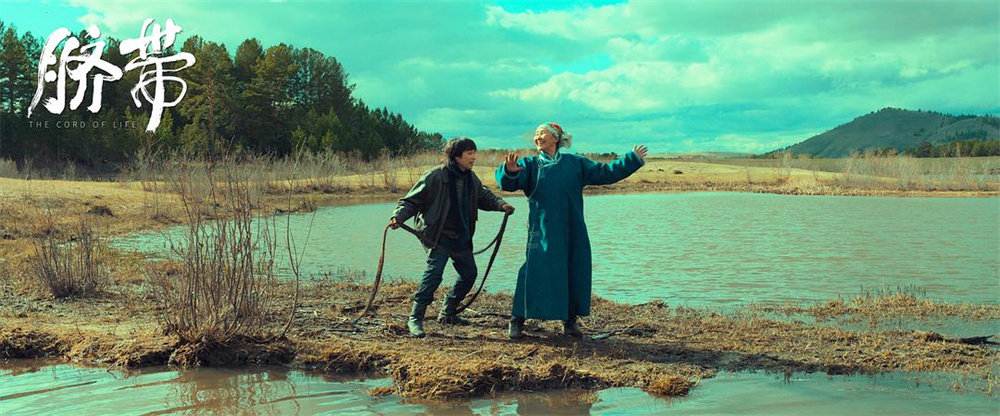
Stills of "Umbilical Cord"
When the film's producer and director of photography, Cao Yu, said when the film premiered at the Hainan International Film Festival, it was a low-budget film, and many scenes were captured impromptuly on the spot because of simple and limited equipment. Badma adapts to this kind of small and medium-cost shooting, without any segmentation, and completes the impromptu performance based on intuition in one go. The director shot in chronological order, not only to capture the changes in the natural scenery of the four seasons on the grassland, but also to allow Badma and Idel, the "mother and son", who were originally strangers, to truly accumulate a deep and intimate emotional state over time.
"I didn't know him at the beginning. The two of us exchanged words with each other through the video for the first time, and then we gradually became familiar with each other when we worked together in Hailar. We will also talk about our different lives, and his experience will also be with him. I said. I think that child is very good, although he has never acted, but in my impression it is very real."
Badema did not come from a major in acting, but graduated from the Vocal Music Department of the Central Conservatory of Music. Idel, who is also a musician, will play some of Badma's songs. The attempt to integrate contemporary electronic music with traditional Mongolian music is also appreciated by the older generation of musicians. "Everything must develop, but He has not forgotten the tradition, the traditional thing is the most important thing, it is the foundation."
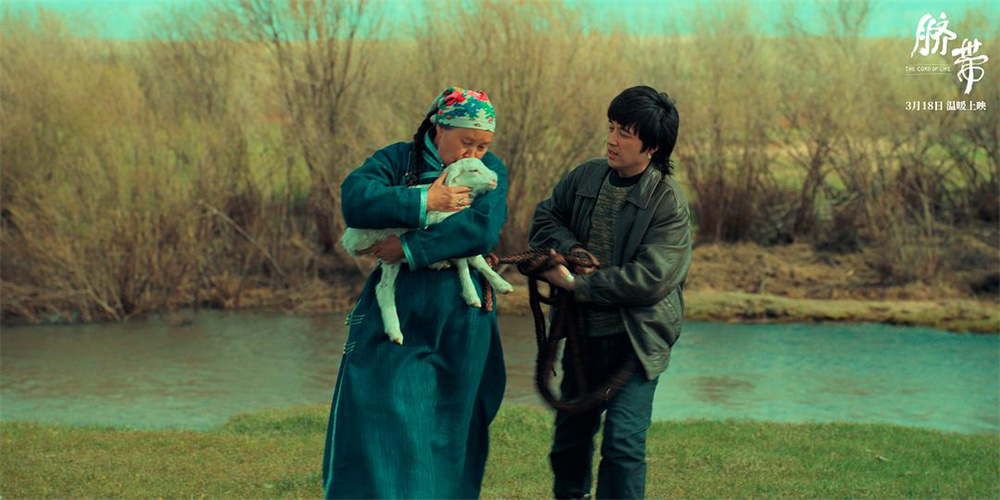
Stills of "Umbilical Cord"
Badma likes the imagery of the title "Umbilical Cord". "The first thing that attracted me to this movie was its name, the concept of 'umbilical cord', the connection between people, mother and child, which is externalized by a specific rope, and it is also a kind of spiritual fetter. .” Badma talked about her understanding of the theme of the film.
There is a scene in the film, Arus dances with his mother by the bonfire, and his mother asks him: "Why are you so unhappy, is that girl not loving you?" Arus cried and said: "Love, she is only temporarily Forgot my name." The young man took his elderly mother by the hand and led her back to her hometown. In the bonfire, the mother followed the family to the depths of the grassland, and the rope cut by the son cut off the deeper connection between man and nature.
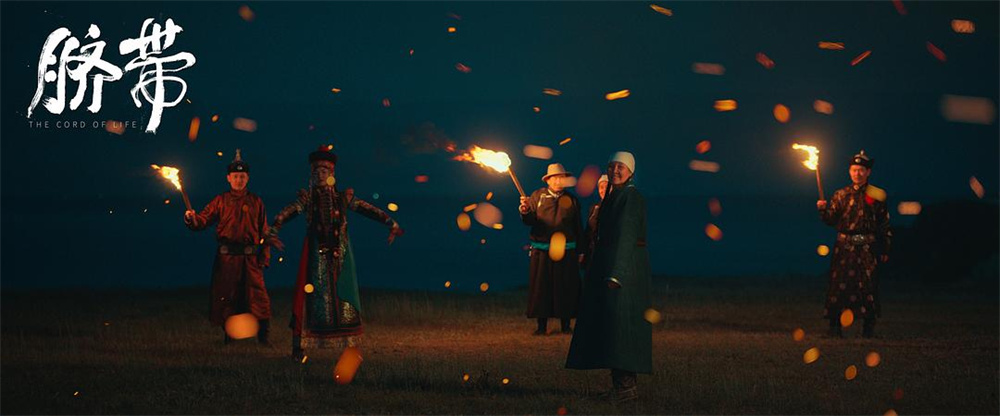
Stills of "Umbilical Cord"
She was touched by such a choice, and she also understood from the bottom of her heart that a more accessible view of life is the perception of getting older, and it seems to have the natural magnanimity of grassland people. Badma said, "A person's living environment brings him The life experience of the grassland will definitely be different. The grassland culture is just like it looks, endless. Therefore, the grassland people’s love for life and nature is also broad and deep. At the same time, life and death on the grassland happen every day. My parents said they would tell us, 'Happiness as a child is not your real happiness.' They also have no culture, nothing went to college, but they would tell me to accept the various states of life."
Life is the best teacher for the low-key "actress" who herds sheep every day
Starting from her first movie role, most of the roles played by Badma have been the images of grassland mothers. From young to old, the women living on the grassland have vitality and a broad mind like the earth.
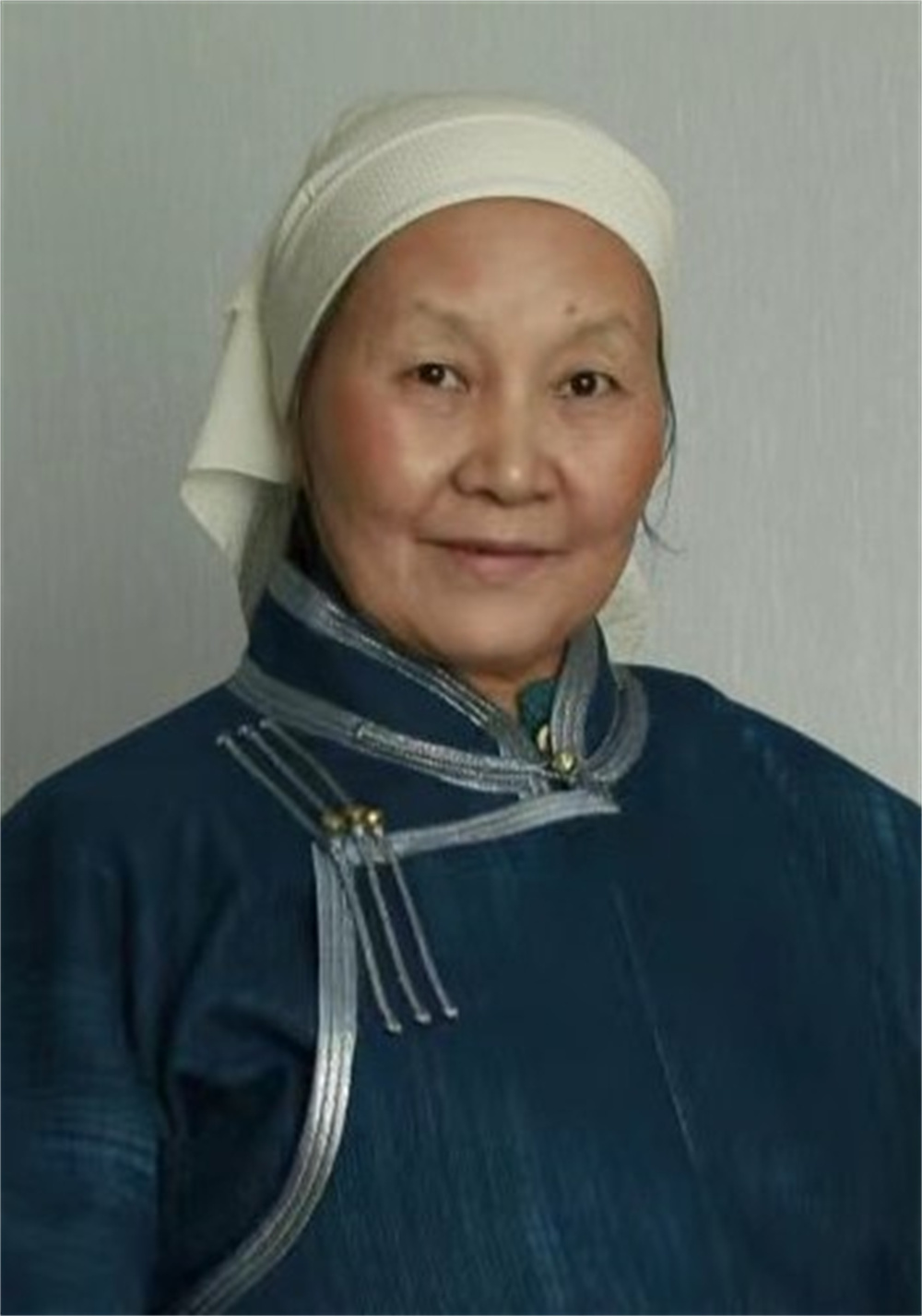
badma
Many people don't know that this low-key actress started her acting career very high, as the heroine of the world-renowned Russian director Nikita Mikhalkov. In the 1990s, her "electric shock" debut "Horse Pole" ("Mongolian Spirit") won the Golden Lion Award in Venice and was shortlisted for the Oscar for Best Foreign Language Film that year.
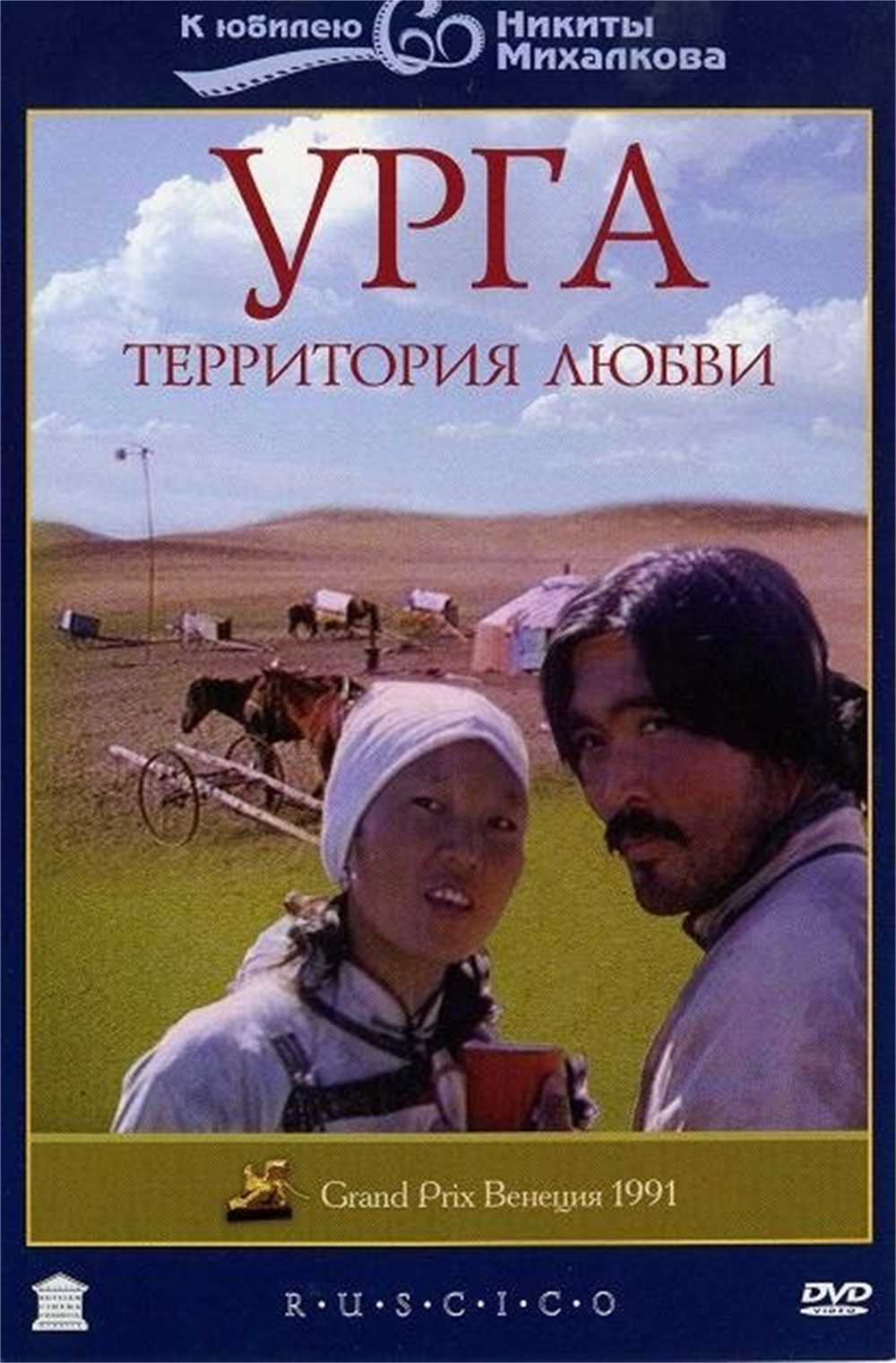
"Horse Pole" poster
In the film, Badma plays Pagma, the wife of the protagonist Gomba, a mother who has three children and "urges" her husband to go to the city to buy contraceptives. Facing the wildness of "horse pole", she is young and shy, but also full of enthusiasm. In her husband's dream, she can incarnate as a well-dressed leader's wife, riding a steed, without being angry and majestic. At the same time, she also fully demonstrates her empathy as a wife, and silently tolerates and understands her husband's indescribable difficulties.
It is said that at that time, Badma participated in the casting of the Mongolian movie "Horse Pole" out of the mentality of watching the excitement. Among a group of candidates with professional background, Mikhalkov just took a fancy to Badma. naive and simple. Although "debut is the pinnacle", Badma chose to live a life of going to work and grazing on the grassland after filming.
In 2014, Badma starred in the movie "Nuozhijima" directed by her husband Bayin, playing the heroine Nuorijima, a simple Mongolian woman in her fifties, and won the 30th China National Awards for this role. Golden Rooster Award for Best Actress.
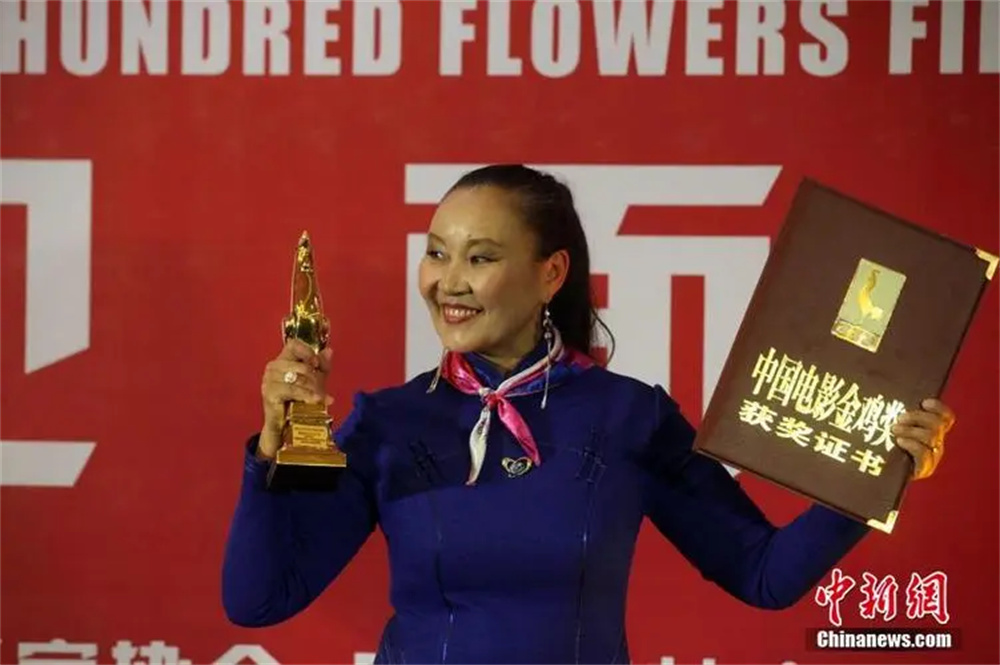
Badema won the Golden Rooster Award for Best Actress.
The film is based on the Battle of Nomenhan that took place on the Hulun Buir Grassland. Hearing that the war was coming, the herdsmen on the grassland migrated and left their homes. Only Nuozhijima, who was infatuatedly waiting for the return of her lover Hanggai who went to the battlefield more than 20 years ago, insisted on staying and guarding the grassland. On the vast and peaceful grassland, there are only three horses, a few cows, a herd of lambs and two yurts accompanying the simple and persistent Nuozhijima. The gentle and strong women treat the soldiers injured in the war with the same kindness and kindness as they treat small animals, save the lives of the wounded regardless of nationality, and infect the two alienated in the war with their broad mind and selfless love. a soul. In the film, Badma is a wife waiting for her lover to return, a master who takes care of the land and livestock, a victim of war, and a savior of two lives and souls. Badma's performance is simple and natural, full of national emotions, and wonderfully shows the image of a kind, benevolent, straightforward and natural Mongolian woman.
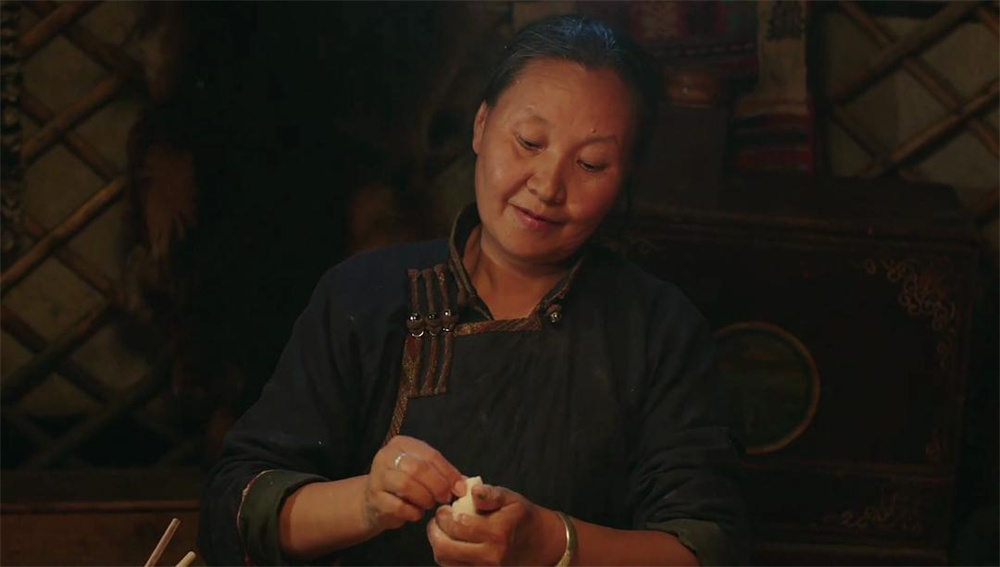
Stills of "Nuo Rijima"
At the following year's Golden Rooster Awards ceremony, Badema defeated many popular candidates of the year and won the Best Actress surprise. In an interview after winning the award, she repeatedly emphasized: "I am not a star, I am an actor, and I am a Mongolian actor!" The oolong that followed was that in the introduction of this authentic "actress" by major media, However, due to the extreme scarcity of past reports, another older Inner Mongolia long-tune singer's resume with the same name was "crown and worn" on Badma.
"Ms. Badma still lives in the pastoral area, and she still has the imprint of the Mongolian tradition on her body." This is also an important reason why Qiao Sixue insisted that she must star in "The Umbilical Cord".
Asked why she did not go out of the grassland like some other Inner Mongolian actors of the same generation, Badma said, "I like life in the pastoral area. I grew up in the pastoral area, and I am a child of herdsmen." Badma, who works in the Inner Mongolia Art Theater, She is still a singer on the job, and has lived a life of "performing when there are performances, and grazing when there is no performance". Even now, on holidays and weekends, she has to go back to her hometown, "staying with cattle and sheep For a few days, see them and feel at ease, and then go back to work."
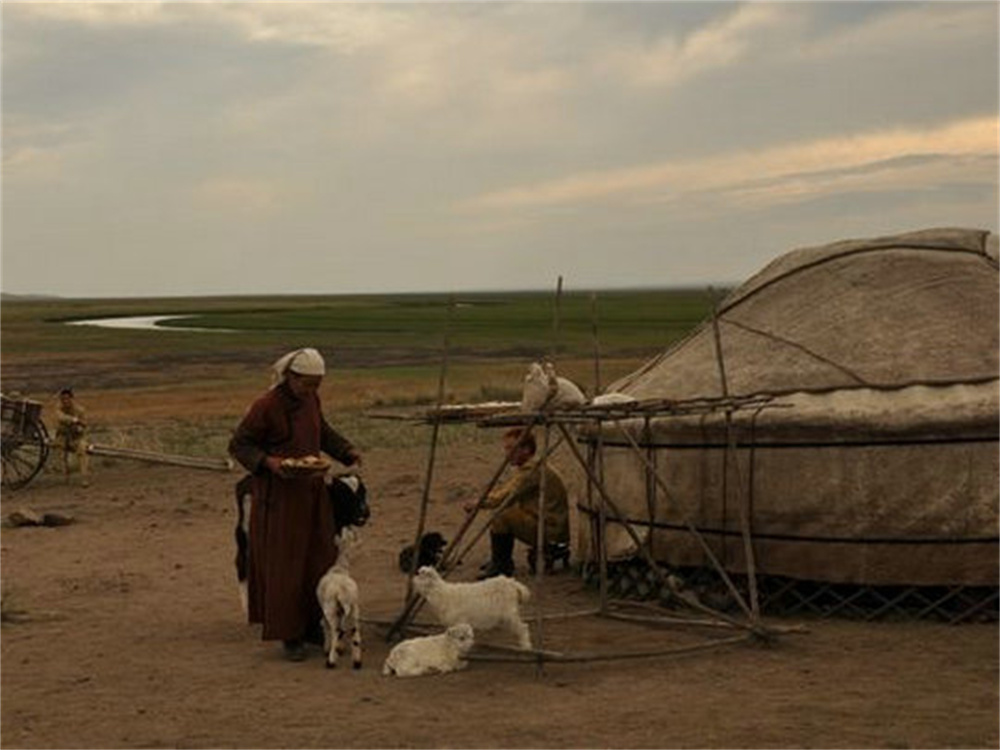
Stills of "Nuo Rijima"
Asked what she thought of her acting talent and identity as an actor, she said, "The face my parents gave me is my wealth, and my life is another important wealth." Bud, who is not good at words, Ma emphasized, "As an actor, the most important thing is life. Life is the best teacher and everything to you. It is the most important foundation of the so-called 'acting'. If you leave life, you can't do anything right."
In the film, the young son uses an "umbilical cord" to tie his mother back to his homeland. The rope also connects the conflicts and swings between the old and new cultures. For this cooperation with a group of young people from Inner Mongolia, Badema felt the difference between the two generations during the process, and also liked that they looked at this ancient land with a more contemporary perspective. "I was born in the 1960s, and I have hardly left the grassland in my life. Although they were also born on the grassland, they may not have had the experience of herding sheep every day in their childhood. The younger generation, they go abroad and see the vastness outside. The world, their thinking is very contemporary. I also like to work with young people and learn from them."


